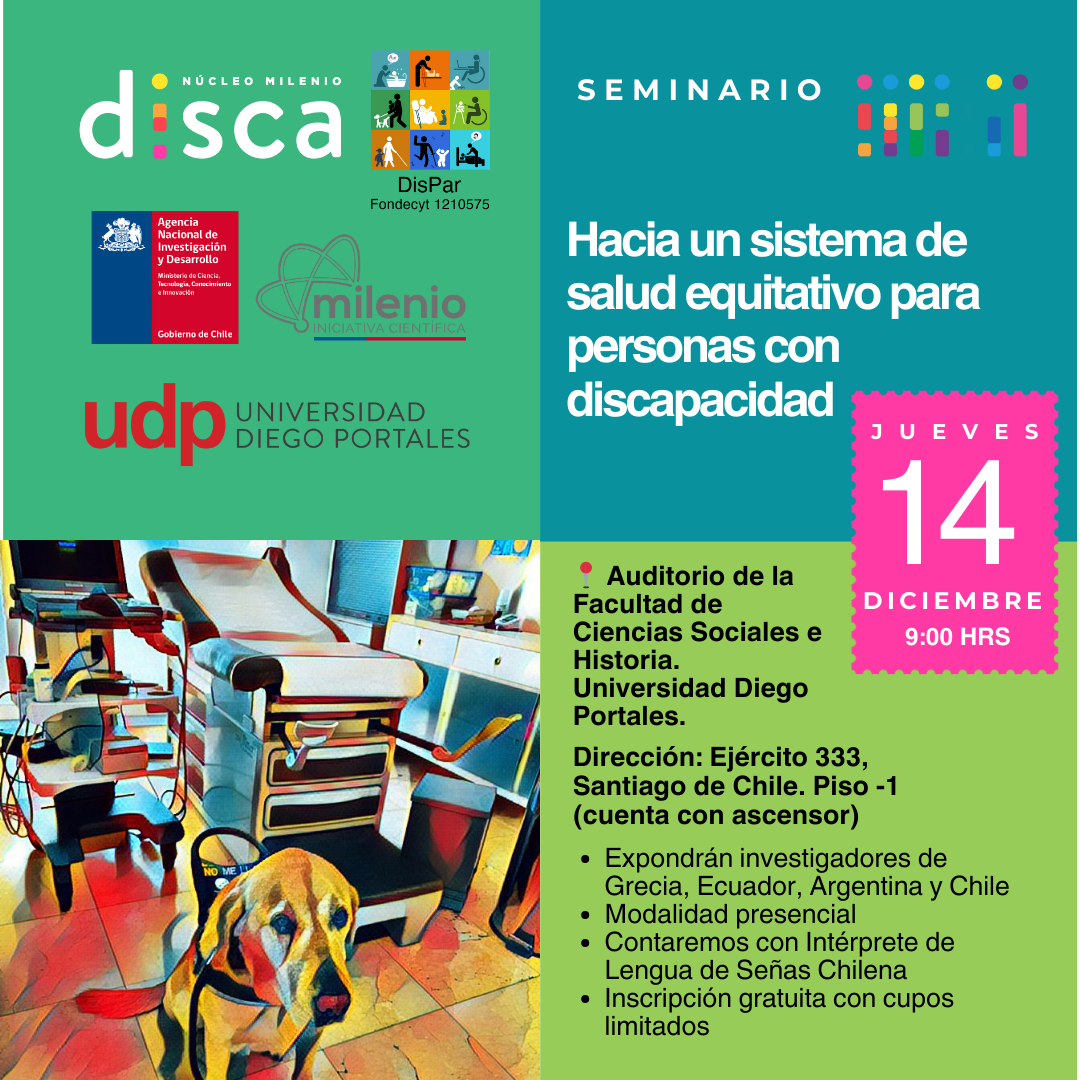Seminar: “Towards an equitable health system for people with disabilities”.
Lugar: Universidad Diego Portales, Ejército 333, Auditorio -1
Fecha: 14/12/2023
Hora: 9:00 am
Link: https://forms.gle/iU29xmqorNxPcjzm6
Although access to health services is a human right, people with disabilities face several barriers in their efforts to access such services, reporting more unmet health needs, worse experience with health care services and personnel, and poorer health outcomes. Timely, accessible, affordable and good quality health services are key to the health and well-being of all people. Aiming to create an equitable health system will not only bring benefits for people with disabilities, but will also have a positive impact on the economy and society.
We need more data and more research on which to base the development of public policies, strategies and programs aimed at transforming the health system. For this reason, it is important to engage in a fruitful dialogue between the academic community, decision makers and people with disabilities and their organizations, in order to identify barriers to access and inequities in health care and move towards an inclusive health system.
For this reason, the Millennium Nucleus DISCA (Disability and Citizenship Studies), together with Fondecyt DisPar (Reproductive processes and parental experiences of people with disabilities in Chile: discrimination, adaptation and resistance), and the Universidad Diego Portales, are organizing the Seminar “Towards an equitable health system”.
Date and time: December 14, 2023 at 09:00 a.m.
Place: Auditorium of the Faculty of Social Sciences and History, Universidad Diego Portales. Ejército 333, Santiago, Chile. Floor -1 (there is an elevator)
Registration: For attendance, prior registration is required at this link.
Program
09:00 to 09:30 Welcome
09:30 to 11:00 Panel 1: Towards an equitable health system for people with disabilities.
- Presenter:
- Dikaios Sakellariou, Cardiff University, UK.
- Pía Venturiello, University of Buenos Aires, Argentina
- Pamela Molina, Executive Director, World Federation of the Deaf, Argentina
11:00 to 11:30 Coffee break
11:30 to 12:30 Panel 2: Reform of mental health legislation in Chile.
Speakers:
- Pablo Marshall, lawyer and alternate director of Núcleo Milenio Disca.
- Marcelo Sanhueza, Mental Health Advisory Council of the Ministry of Health.
- Alejandro Guajardo, Dean of the Faculty of Medicine, USACH
12:30 to 13:30 Panel 3: Decisions, experiences and support in the reproductive stage of people with disabilities.
Speakers:
- Jimena Luna, CEDETi UC, CIAPAT Chile, Fundación Vida Independiente Chile.
- Andrea Yupanqui, UMAG
- Beatriz Miranda, Critical Disability Studies Program.
- Melissa Hichins, UMAG and Reprodis.
